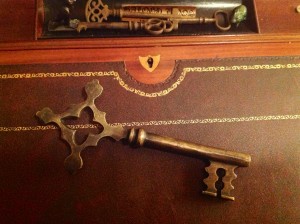
The attic in my grandfather’s hunting lodge in Austria was a wonderland; especially for a young boy. Just to get to it was an adventure. You could only reach it by way of a narrow set of winding stairs which always creaked.
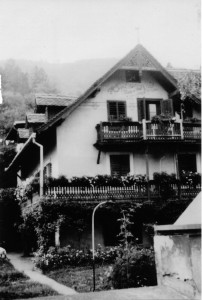
Gabriel Farago author explores his European history.
Once you made it to the top, you were met by a low, wood-panelled door with solid, wrought iron hinges. The door was usually locked, and the huge key resided in grandpa’s study. In the bottom drawer of his beloved desk; until it became mine that is.

Gabriel Farago, Australian author of thrillers explores his European history.
The attic, a narrow, rectangular room at the very top of the spacious house where a maze of massive exposed wooden beams held up a steep roof, became my secret world. It was a place where you could dream and let your imagination run free. And there was certainly a lot to stimulate the imagination—books mainly, hundreds of them — and a few fascinating objects to enchant a curious boy. Welcome to my grandfather’s private world.
There were no shelves or bookcases, the books were all in old trunks covered in cobwebs. As a career soldier — a high ranking officer in the Austro-Hungarian army — my grandfather travelled a lot. He was stationed in various parts of the Empire, often for years, and his most treasured possessions travelled with him in those trunks.
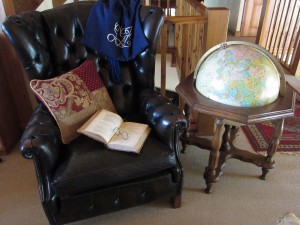
A leather chair — armrests worn and faded — faced a dormer window with a splendid view down into the garden. Next to it was a wooden table with intricately carved legs. On its polished top lived two very special objects: my grandfather’s wonderful old typewriter, and a gramophone. And, I almost forgot, his reading glasses in a flat metal case and a silver pocket-watch.
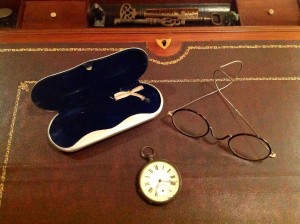
The typewriter with its many moving parts became an item of great fascination. I experimented for hours, pressing the keys, watching the ribbon move and the spools turn, always waiting for the little bell to ring, until one of my aunts took pity on me and actually showed me how it worked.
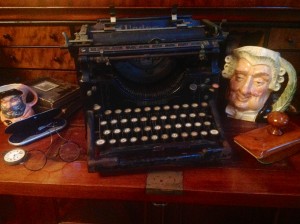
Sadly, I never met my grandfather — he died many years before I was born — but in that attic I believe I got to know him through his books and his music. I became a voracious reader. After school, I headed straight to the attic. Not to do homework, but to read. It was my introduction into the wonderful world of books, a passion which has never left me, and which today, more than ever, guides my life. I believe this was my grandfather’s legacy; a gift to the grandson he never met: literature and music.
I still have that typewriter and that gramophone, and I still have the key to my grandfather’s attic and his reading glasses and his watch. Memory links us to the past. Without memory we are rudderless, adrift in the turbulent sea of life without compass of anchor. Special objects are little memory-triggers that can conjure up thoughts and ideas hidden in the recesses of our minds.
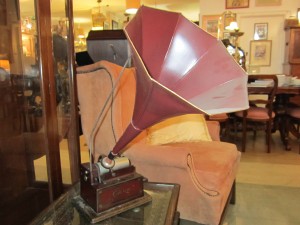
They are little souvenirs of life’s little stops along the journey.I am surrounded by them up here in my own attic in the Blue Mountains on the other side of the world. I still type the occasional page on that typewriter, and listen to an old, scratched Caruso record or two on the gramophone. They give me a great sense of peace and joy, and most importantly, inspiration to do what I love most: writing.



